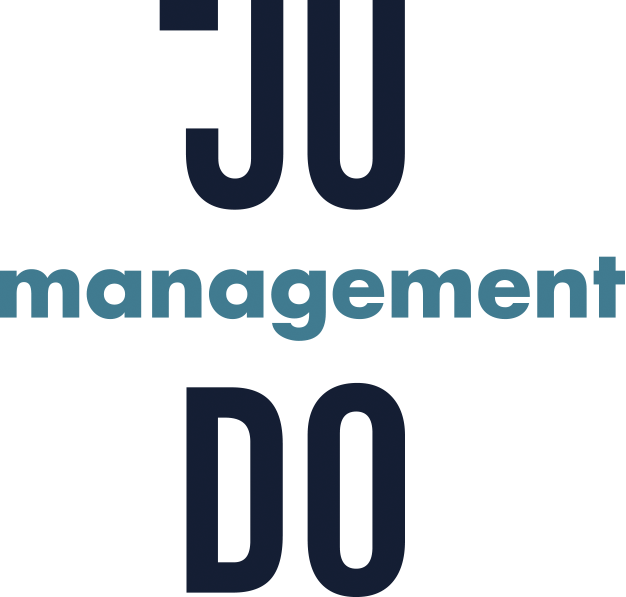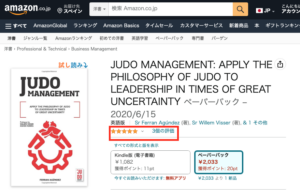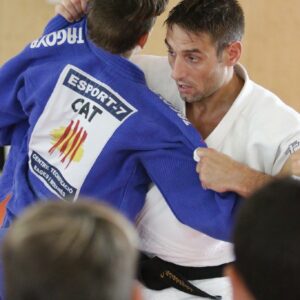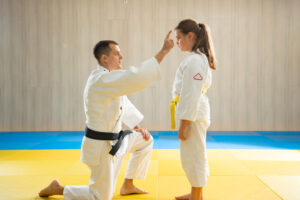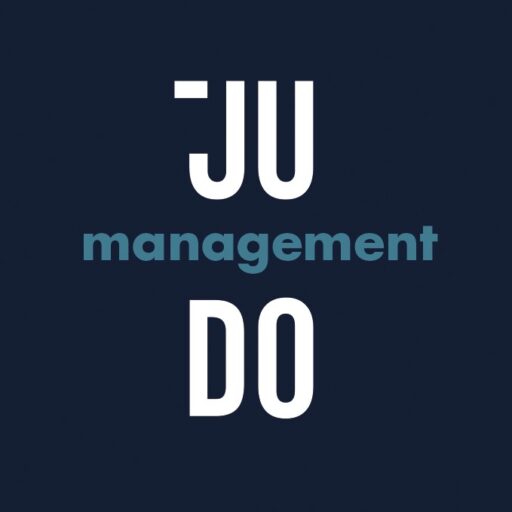Judo management book prologue by Xavier Ferràs
I have known Ferran Agúndez since I was a boy. A few years older than me, he was always one of my role models. A person who combined a shared passion for the sport of judo with an intense professional and intellectual life. Ferran has played a decisive role in my life. In the late nineties, he invited me to some training sessions at a start-up that he had launched with a mutual friend, Carles Torra, a jujutsu sensei. The company was called Ironmanager. Ferran and Carles were total visionaries in terms of what was going to occur: the competitive environment was going to speed up in an extraordinary way, and another kind of manager would be required, more accustomed to taking the initiative, action and adapting to the forces of the environment. Management needed judo. Good managers had to be flexible and quick. They had to harness the forces of the market and technology, sometimes adverse, for their own benefit. Implicitly, managers needed to learn the principles of judo.
Those long gone days shared together at a farmhouse in Central Catalonia, experimenting with Ironmanager, changed my life. Back then, I was a young engineer, bored of factory work. Ferran showed me the fascinating connection between the world of management, then unknown to me, and a world that I loved and knew well: judo. I had trained at the Esport 7 club in the city of Manresa, one of the best clubs in Spain, the hub of a true judo cluster (a set of skills concentrated in a territory). Due to an extraordinary creative process by successive generations of black belts, Manresa was the focal point of a hub of great talent in the sport. I was lucky to join this process and do judo since childhood. And at that time, at Ironmanager, when I came into contact with business management and got a sense of its conceptual links to judo, I understood that my professional life should be geared towards knowledge and practice of management. That vision of the connection between judo and management marked a turning point in my life.
I decided to undertake an MBA. And by doing so, I discovered my true vocation, as well as the deep connection between management practice and the principles of judo. When competitive strategy was discussed in the lecture rooms of the ESADE, I remembered the images from my youth on the judo mats. When management by values was explained to me, I thought of the judo moral code, present in all dojos (the space where judo is learned and practised): courtesy, courage, honesty, honour, modesty, self-control, respect and friendship. When key competences were talked about, I linked them to tokui-waza (the series of specific judo techniques, that the judoka masters naturally, due to their morphology and weight). When we explored Toyota’s philosophy of kaizen (“continuous improvement”), I perfectly understood its principles: we had performed thousands of repetitions (uchi-komis) of a judo move in order to become hundredths of a second quicker, in an unparalleled exercise of Japanese kaizen. And, above all, when I discovered the concept of innovation, I was fascinated to realise that they were talking about judo.
Since completing my MBA, my professional life has unfolded around that core concept: innovation. I have written an endless number of articles on the subject. I have taught thousands of hours of class on innovation. I have extensively studied how companies quickly change their competitive position, how they modify their strategy, how they create the skills of flexibility, how they adapt to a rapidly changing environment, how they flow in changing situations, how they foresee attacks by their opponents. Without my pupils knowing, during all these hours, I have ultimately had the privilege to explain entrepreneurial judo.
In judo, unlike other sports, many philosophical principles that go beyond sporting practice are an explicit part of its everyday practice. Principles that draw inspiration from ancient sources of Eastern philosophy. The judogui (uniform for judo) is white, and is the same for everyone. It is a symbol of purity, equality and humility. In judo, we walk onto the judo mat barefoot and wearing only our judogui. We are ourselves, our truest and deepest self, without weapons or accessories. We must resolve our problems (defeat our opponent) using only our strength and skill, earned over long hours of training. In judo, we respectfully greet bowing toward our opponent, as a sign of gratitude for their contribution to our learning process. The opponent (uke ) is also our teacher. And we learn that we ourselves are the true enemy: our ego, our mental limitations, our physical weaknesses, our fears. In judo we progress through a rank of coloured belts. However, each belt means responsibility, not hierarchical status. High ranking belts have a duty to help novice belts to improve. In judo, the first key lesson is to get back up again when you fall. Get back up time and time again after falling. And, ultimately, judo teaches us something crucial in life: it teaches us to fight. To fight with values, dignity and fearlessly. This is a vital lesson. Life is a struggle and, whether we like it or not, we must fight on a daily basis, to promote a business, ensure a team achieves its objectives, overcome a difficult personal situation or beat an illness. Life is an ongoing struggle, and judo teaches us to fight. Therefore, judo is an education for life.
We were fragile children who began doing judo at a very early age. We were eager adolescents who dreamed of obtaining their black belt. We were strong young men who were shaped through sporting competition and in university lecture halls, and who progressively learned about the true responsibilities of life.
We are now mature adults, who continue to do judo and who try to extend its principles to other areas of life, and to pass on that knowledge to our children. Some of us have been lucky to further examine the connections between judo and management from an almost philosophical perspective, and to have practised both on the judo mat and in the organisations where we have worked. Still to this day, Ferran Agúndez, 4th dan black belt, is a role model for me and a sensei who I will never be able to thank enough for how his intuition and initiatives defined my path in life, my do.
I hope that the readers enjoy Judo Management, and the exciting connections. Many thanks Ferran for your teaching, and many congratulations for this masterpiece.
XAVIER FERRÀS,
MBA, PhD, Professor of Operations Management, Innovation & Data Sciences at ESADE. 2nd dan judo black belt.
